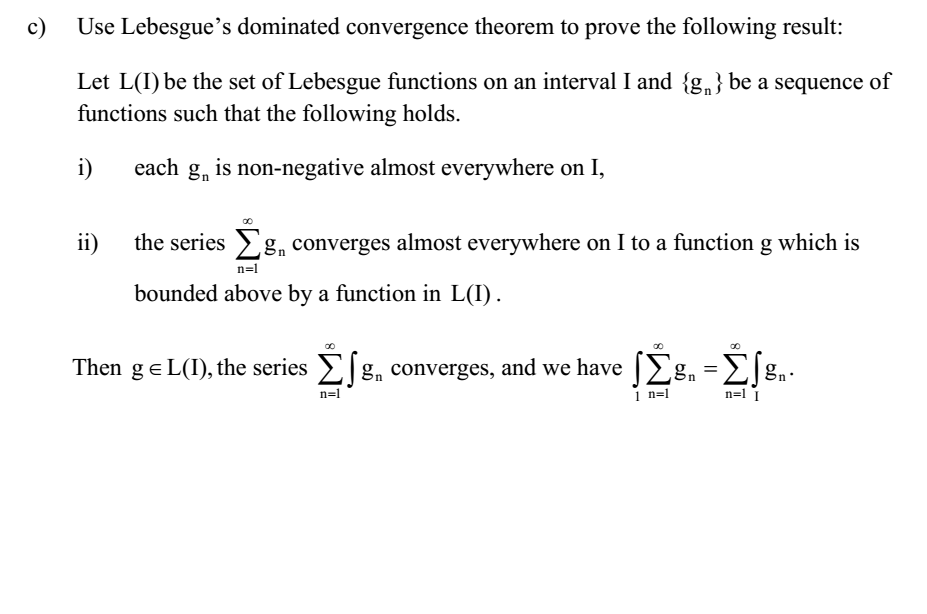Question
c) Use Lebesgue's dominated convergence theorem to prove the following result: Let L(I) be the set of Lebesgue functions on an interval I and

c) Use Lebesgue's dominated convergence theorem to prove the following result: Let L(I) be the set of Lebesgue functions on an interval I and {g} be a sequence of functions such that the following holds. i) each g is non-negative almost everywhere on I, ii) the series [g, converges almost everywhere on I to a function g which is n=1 bounded above by a function in L(I). Then g = L(I), the series fg, converges, and we have gn =] gn 'n n=1 1 n=1 n=1 I
Step by Step Solution
3.30 Rating (159 Votes )
There are 3 Steps involved in it
Step: 1

Get Instant Access to Expert-Tailored Solutions
See step-by-step solutions with expert insights and AI powered tools for academic success
Step: 2

Step: 3

Ace Your Homework with AI
Get the answers you need in no time with our AI-driven, step-by-step assistance
Get StartedRecommended Textbook for
Introduction to Real Analysis
Authors: Robert G. Bartle, Donald R. Sherbert
4th edition
471433314, 978-1118135853, 1118135857, 978-1118135860, 1118135865, 978-0471433316
Students also viewed these Mathematics questions
Question
Answered: 1 week ago
Question
Answered: 1 week ago
Question
Answered: 1 week ago
Question
Answered: 1 week ago
Question
Answered: 1 week ago
Question
Answered: 1 week ago
Question
Answered: 1 week ago
Question
Answered: 1 week ago
Question
Answered: 1 week ago
Question
Answered: 1 week ago
Question
Answered: 1 week ago
Question
Answered: 1 week ago
Question
Answered: 1 week ago
Question
Answered: 1 week ago
Question
Answered: 1 week ago
Question
Answered: 1 week ago
Question
Answered: 1 week ago
Question
Answered: 1 week ago
Question
Answered: 1 week ago
Question
Answered: 1 week ago
Question
Answered: 1 week ago
Question
Answered: 1 week ago
View Answer in SolutionInn App



